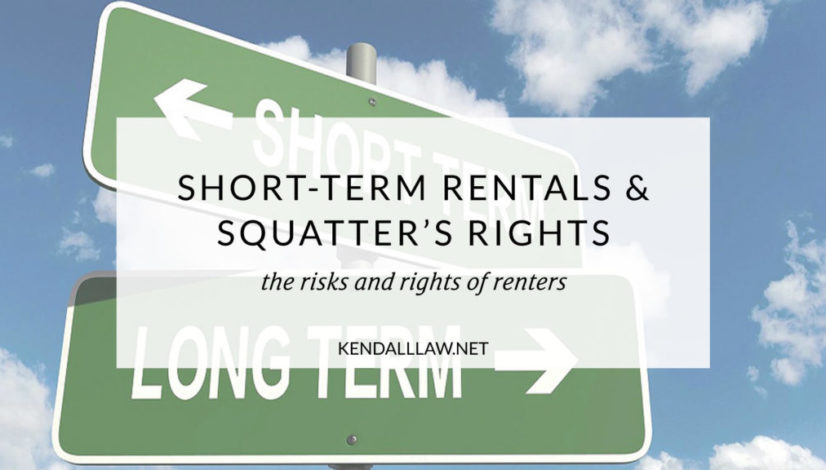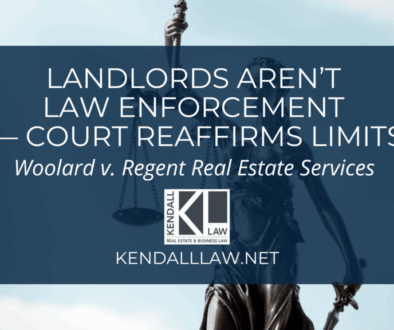Risks of Short-Term Rentals and Squatter’s Rights
The new trend is to rent someone’s house or room through Airbnb or VRBO instead of staying in a hotel. (I personally would prefer to stay in a hotel where there is maid service.) Here are some of the risks you need to think about before getting into the short-term rental game.
Q:
A:
Is a broker’s license required to act as a property manager for short-term rentals?
The answer is it depends. If the rental is less than 30 days, there is no need for a broker’s license. An Advisory was issued by CAR (California Association of Realtors) that touched on this topic. Under California law, a real estate broker’s license, or working under someone who holds a real estate broker’s license, is needed for any person that leases or rents or offers to lease or rent, or places for rent, solicits listings for or rents or solicits prospective tenants or collects rents… for another for compensation. (Bus. & Prof. C. § 10131.) The exemption to that requirement is if the rental is for less than 30 days. These rules of course do not apply to owners offering their own property for rent.
Short-term rentals are only available to the owners of the property and are subject to local regulations and taxes. If you are thinking about managing a short-term rental for someone else or are the owner and want to get in the short-term rental game, you will need to get familiar with the local laws and tax requirements/implications for short-term rentals.
Q:
A:
Now what happens if the renter stays in the property more than 30 days?
They could obtain squatter’s rights and if they stay in the property long enough unchecked, they could become an owner of the property.
In 2014, Business Insider featured an article about a woman who rented her 600-square-foot Palm Springs, California condo to someone for a little over a month on the premise that he was on an extended business trip. Shortly after arriving, the renter complained about a few things and demanded a refund. The owner agreed. Despite obtaining the refund, and both Airbnb and the owner telling the renter to leave, the renter refused to leave. When the rental period ended, a text was sent telling the renter that the rental contract was up and that the power and utilities were being turned off. The renter’s response was that he had consulted with an attorney and that he was legally occupying the property. The renter told the owner that he was pressing charges for blackmail and would sue for damages.
Coincidently, a Palm Springs newspaper ran an article about two gentlemen that rented an Airbnb in Palm Springs for six (6) weeks. On the sixth week, one of the gentlemen texted the owner and told him that they were not leaving as they now had a right to stay in the property.
Q:
A:
How can these renters claim a right to the property?
It is because California has very “tenant” friendly laws. If someone gains access to the property and establishes that they have lived there for over 30 days, they obtain what is called “squatter’s rights” and the owner cannot remove them from the property without going through the court system.
The moral of this post is to highly recommend that you strictly limit any rental to 29 days. For those that want to manage these rentals for others, this will ensure that you do not have to have a broker’s license. For those that own the property, you will avoid the renter from obtaining squatter’s rights which would require you to jump through the hoops of an eviction to remove them from the property.
For even more interesting info about squatter’s rights in California, watch for my post in December about vacant property.
Author: Eileen Kendall





